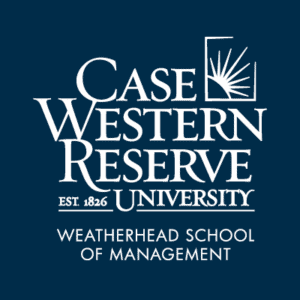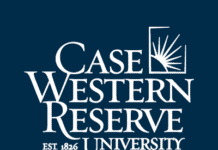The Case Western Reserve Masters in Finance program is one that I wrote about a long time ago and seem to have forgotten about as time went on. I was recently checking out the program and realized that a lot had changed and I was way beyond overdue for updating all of you on the program. For this, I apologize. This is a really good school in Cleveland and should be somewhere you check out when thinking about which school to apply.
Program Overview
There is a lot of interesting and positive things going on with this program. The Case Western Reserve Masters in Finance is part of the CFA Institute University Recognition Program. I’ve mentioned this many times in the past, but I think this is a great thing for MSF programs to be part of.
The program offers four different tracks to allow students to specialize their educations and three out of the four are STEM certified. This is very important for international students and I would consider any program not STEM certified to be not in line with the market.
- Financial Big Data Analytics Track (STEM Eligible)
- Corporate Financial Analytics Track (STEM Eligible)
- Risk Management Analytics Track (STEM Eligible)
- Corporate Finance
Students can also pursue an MBA, both locally and in China with the dual degree option. I’ve seen a handful of schools do this and I think it is nice as it provides some optionality for older students or those looking for a customized educational experience.
The program is 30 credit hours (pretty standard) and can be completed in as little as nine months. Students can stay for up to two years to complete 39 credit hours with departmental certification in a track specialization by taking appropriate additional electives. MSF students may also apply for summer internship opportunities during this time, available on a competitive basis.
Class Profile
The Case Western program is really good about providing comprehensive class profile information. What I really like is how they compare two class years. This will give you a good idea of how selectivity changes and what areas you should focus on to improve if you are deficient.
- Class Size – 165
- International – 84%
- GMAT Average – 656
- GPA Average – 3.4
- GRE Verbal Average – 148
- GRE Quant Average – 164
Comparing this to the previous year you see a slight downward shift in the GMAT average, although the range stayed approximately the same. The program also became slightly less international, although still very high. This is a larger program, but not the largest I have seen either.
Placements
Case does a good job listing all the firms that hired MSF graduates over the years. I’d love to see this broken out by year, but this isn’t a huge critique. I am going to include a number of the names below, but if you want to see every firm, check out this link.
- Bloomberg, LP
- BNY Mellon
- Chase Credit Card Services
- China Construction Bank Corporation
- Deloitte
- Delphi
- Eaton
- Federal Reserve Banks
- Goodyear Tire and Rubber Company
- Huntington Bank
- JPMorgan Chase
- KeyCorp
- PNC
- Progressive Insurance
- PwC
- UBS (China)
- Victory Capital Management
Looking at the list you can see a mix of F500, commercial banks, accounting firms, investment banks, US and Chinese firms, as well as consulting firms. This is really nice as it seems all types of career outcomes are available from this program. I will check with the school and see if I can get some additional color.
Admissions
Admissions for this program is pretty standard. Two essays, GMAT or GRE, transcripts, resume and two recommendation letters. International applicants have a couple other items they need to provide. Right now I could not find anything about GMAT/GRE waiving related to COVID, but I would imagine there is some flexibility in the policy. Please check with the school regarding this.
Tuition for the 9 month track is fairly reasonable, coming in at $52,500. We are currently pretty late in the application cycle, but there is one remaining round available, with Round 8 being due July 1st, 2020. Don’t delay!
Miscellaneous
Couple things that are relevant, but I don’t think needed a full section. The school has virtual office hours with admissions that students can sign up and ask questions. You can see a calendar of the meeting times here. It looks like every other week on Monday, at 9am ET they have office hours. Check the link out to confirm.
There is a section on student experiences that I found helpful as well. I’ve spent a lot of time in Cleveland and I promise you, it isn’t like what some of you have heard. The city is one of my favorites and I think students can get a lot out of it. Plenty of financial firms to network with, a great airport, close to Chicago, Detroit, Pittsburgh, etc, and just a generally fun place to be.
—
I hope you will check out this program if you are considering a MSF. Keep checking back for future updates.
Here is a link to the Case Western Reserve Masters in Finance Program



